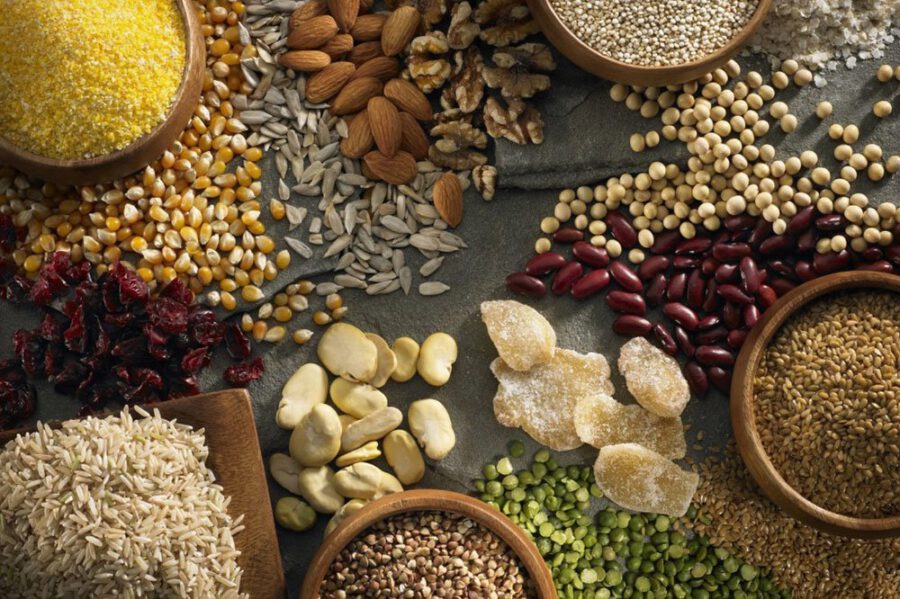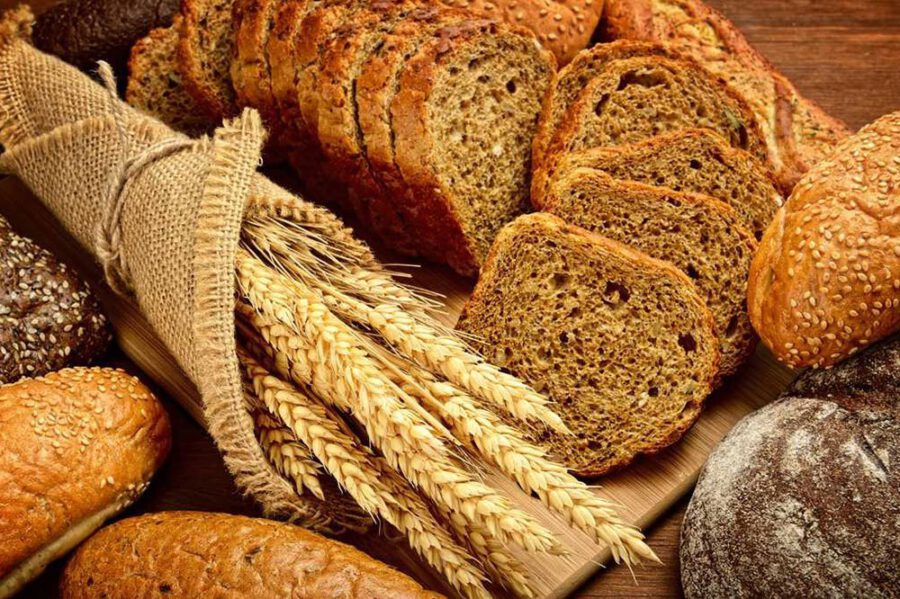What Is Gluten?
Is Gluten Really Bad For You?
You may have heard of the infamous gluten, something that a whole lot of people seem to be avoiding these days. Some are not eating it, claiming to be gluten intolerant or gluten sensitive, and others are avoiding it simply out of fear.
With this article What Is Gluten?, you will understand everything regarding gluten and gluten intolerance.
Should you be avoiding it too? Let’s find out, and learn a little bit more about gluten and gluten intolerance.
Gluten is a protein found in certain grains, those grains being wheat, barley, spelt, rye, and kamut. Oats are also usually contaminated with gluten during processing. The grains themselves are found in flours, pasta, beer, malt, breads, baked goods, ‘wheat free products’ and cereals.
These are things that almost everyone eats every day, and is not restricted to an unhealthy or healthy diet. Gluten is found in both unhealthy and healthy foods! It is a normal nutrient consumed in the diet of most people. So why is everyone trying to avoid it?
Approximately 1% of the population has gluten intolerance (That’s 1 in 100 people), otherwise known as celiac disease. This disease causes the person to have an irregular and violent immune response to gluten.
The body’s reaction causes inflammation in the small intestines, which leads to the destruction of the cells and structure of the intestinal walls. This structure damage is very bad, because our bodies rely on the surface area of these intestine structures to absorb nutrients!
This inflammation and damage also allows bad things like bacteria and antigens (Invading microbiotic organisms and allergens) to get in, including more gluten, which accelerates and worsens the reaction and the state of the body.
When someone with celiac disease eats gluten, it can not only be very painful, but it can also leave lasting effects if gluten is not cut out of the diet, such as nutrient deficiencies and irreversible intestinal damage, not to mention the intense pain that accompanies it. For those people who have the disease, avoiding gluten is the best option.
Those with gluten sensitivity who have somewhat milder reactions to gluten are in danger of becoming intolerant and should seek professional help to try and train their body to be able to handle certain amounts of gluten, so as not to become intolerant.
So, should everyone just avoid gluten to avoid gluten intolerance? No! -Because avoiding gluten actually increases your chances of becoming sensitive or intolerant to gluten!
Avoiding gluten is fine at first, but after a period of time of not eating gluten, your body is not used to it, and the presence of the ‘unknown’ protein may trigger an immune response. The more this happens, the more violent the response is likely to get. So if possible (If you don’t already have gluten intolerance), it’s recommended that you eat a normal, healthy diet containing gluten, in order to avoid the possibility of your body treating gluten like an allergen.
The problem today is that people do not understand why things happen with their bodies, and problems in the digestive system can be some of the hardest to solve for professionals, because it’s much harder to take a look inside your body to see what’s wrong.
In addition to that, many countries around the world struggle with easier access to unhealthy foods, but expenses and lack of education surrounding healthier foods and lifestyle options.
Gluten has become something that people are able to point fingers at. Something to take the blame for a sore stomach after eating, cramps, and many other simple digestive problems that could be caused by plenty of other things.
For many people, digestive problems come from the entirety of their diet. Many people eat a lot of unhealthy things. Many people eat too many carbohydrates, much of those carbs being simple and sugary which can create many problems in the body when consumed in large amounts.
Carbohydrates are the largest cause of metabolic diseases like diabetes, heart disease, increased blood pressure, atherosclerosis, ext, and since all gluten products are classified a carbohydrates, it’s easy to turn the blame to them. However, gluten is also found in healthier, heavier carbs like starches, whole grains and fibre containing products, and can also be eaten in moderation in most healthy diets. So the problem isn’t gluten, the problem is people eating unhealthy foods and trying to find a specific reason why their body gets upset.
Eating healthier and exercising can often improve digestive tract health, so it’s a good place to start when trying to solve upset tummy issues. Always remember to see your doctor or a professional like a naturopath, dietician or nutritionist if you think something is truly wrong or if reactions to food get worse, so they can help you find the culprit.
We gave you What Is Gluten?, so you know more about gluten and gluten intolerance.
Let’s recap some of the important points:
- Gluten is in many kinds of carbohydrates, both healthy and unhealthy.
- Gluten intolerance is an inflammatory reaction caused by a dramatic immune reaction to gluten.
- Unless you ARE gluten intolerant, you should NOT avoid gluten, as it can increase your chances of becoming gluten intolerant.
- Don’t be so quick to blame one thing in your diet or self diagnose! It may be something else or a combination of many things causing you problems.
A healthy diet and exercise can promote a healthy and happy system!
Eat better, feel better!
References:
Van Rooyen, C., & Van den Berg, S. (2015). Wheat-related disorders: making sense of Coeliac Disease and other reactions to wheat and gluten: review article. Current Allergy & Clinical Immunology, 28(3), 176-184.
Gulli, Cathy. (2013). The Dangers of Going Gluten Free. Maclean's. Retrieved from: http://www.macleans.ca/society/life/gone-gluten-free/

